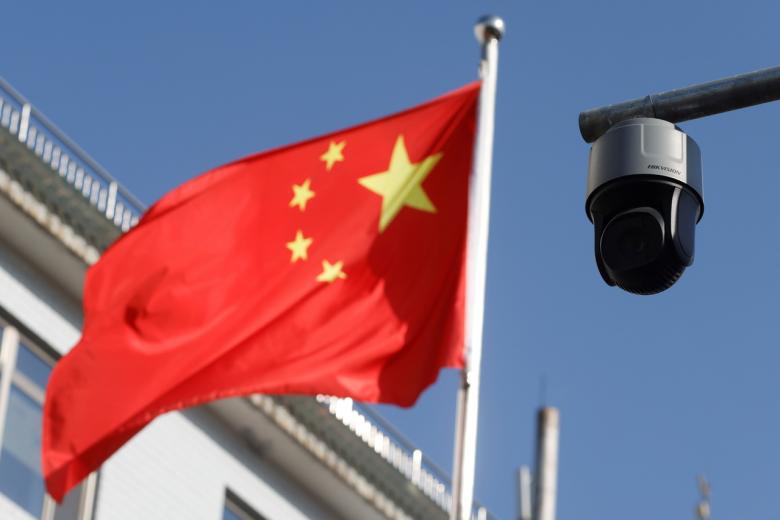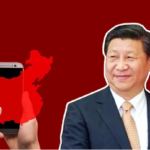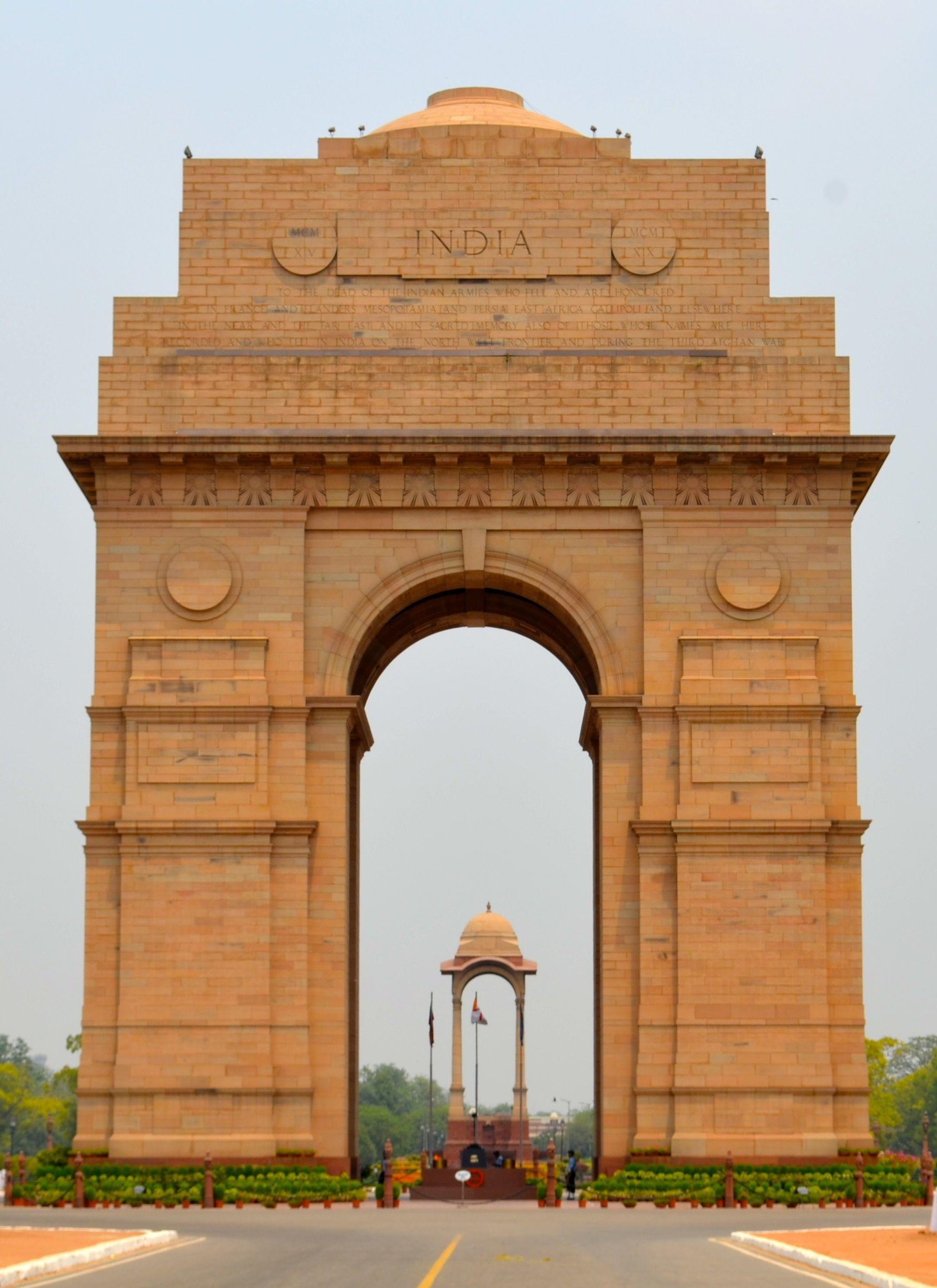
Anti-Xi Slogans in Rare Beijing Protest Spread Within China
Slogans attacking President Xi Jinping featured on banners draped by a lone protester over a Beijing bridge last week have since spread to other Chinese cities and across the globe, as censors on the mainland continue to ban any reference to the event.
Phrases from the original handwritten banners criticized the strict lockdowns and restrictions that have defined Xi’s Covid Zero policy, while also calling for the president’s removal in favor of elections. “We want food, not PCR tests. We want freedom, not lockdowns and controls. We want respect, not lies,” one of the banners read.

The slogans have since appeared clandestinely in at least eight Chinese cities including Shenzhen, Shanghai, Beijing and Guangzhou, as well as Hong Kong, according to VoiceofCN, a group of anonymous Chinese nationals who run a pro-democracy Instagram account with more than 30,000 followers. The group is collating references to the phrases, which have also cropped up at more than 200 universities across the US, Japan, South Korea, Taiwan and elsewhere. https://26c3b1ce2fb994193475b1d525d98262.safeframe.googlesyndication.com/safeframe/1-0-38/html/container.html
An administrator for VoiceofCN, which was created in March 2020, said it received about 20 submissions showing the slogans from mainland China, most of which are in bathrooms or posted on notice boards on schools.
Bathrooms have become a key spot to express dissent, as most are shielded from the ubiquitous security cameras in China’s extensive surveillance apparatus. In one instance, graffiti that read “reject dictatorships” was seen scrawled above urinals at the China Film Archive Art Cinema in Beijing.Sponsored ContentWhy the Next Wave of Brand Opportunities Will Be VirtualMeta
“Most of us work or study outside of mainland China, but we all grew up in China,” the group’s administrator told Bloomberg in a message. “Most students who put up the banners see it as a way to voice out our anger, which has been suppressed for so long by the government and its censorship machines.”
Any public display of opposition toward Xi could lead to a lengthy prison sentence in China, making even relatively isolated protest actions notable. References to last week’s Beijing bridge protest have remained heavily censored across China’s internet, with restrictions even on words as vague as “bridge,” “courage,” and “Beijing.”
Read More:
- Police Patrol Beijing Bridge After Rare Protest Denouncing Xi
- China Censors ‘Beijing’ After Rare Xi Protest Before Meeting
- Defiant Xi Tells World China Is Ready to Stand Its Ground
Xi is facing increased discontent over his Covid Zero policy as he prepares to secure a norm-busting third term in office at the Communist Party’s twice-in-a-decade leadership congress in Beijing. While China goes to great lengths to portray unity and restrict political dissent, particularly ahead of major events, anger is brewing over strict pandemic policies that have made it difficult for citizens to travel in and out of the country for nearly three years.

On Sunday, Xi defended his Covid Zero strategy, which has kept virus deaths low but weighed on growth in the world’s second largest economy.
The current flurry of protest activity resembles the “Not My President” slogans that emerged in overseas universities after Xi lifted presidential term limits in 2018, and the online support for Chinese democracy activist Liu Xiaobo after his death in 2017. In recent years, even Chinese nationals living overseas and their families back in China have faced repercussions for speech that challenges Beijing.
Speculation about the identity of the protester who hung the banners in Beijing last week has been rampant among activists online. Many believe he was a 48-year-old man living in the Chinese capital who published essays using the pen name Peng Zaizhou. Bloomberg News hasn’t been able to independently verify his identity.
Earlier this month, Peng published two now-deleted political essays on ResearchGate, the Berlin-based site for scientists to submit papers. The author’s profile page, which is now inaccessible, showed that he previously published papers on electromagnetic waves and electric fields.
‘Tank Man’
The political essays laid out a detailed plan for how to remove Xi from power and reiterated the slogans later seen on the banners in Beijing, according to an archived screenshot of his author page. The writings described how he was “unable to accept” China’s Covid controls, which he said impacted his work.Sponsored ContentHow Indonesia’s G20 Is Building Global Health ResilienceMCI
A spokesperson from ResearchGate said that its website wasn’t accessible in China from 6 p.m. on Thursday until Saturday at 8 p.m., without elaborating further.

The protester conjured up memories of the iconic “tank man” who stoop up against a military crackdown on protests at Tiananmen Square in 1989, according to Perry Link, editor of the “Tiananmen Papers” and a professor at the University of California, Riverside.
“He’s been carted away just as the tank man was, and the tank man, to this day, we don’t know what happened to him,” Link said. “This guy, too, might face that fate.”
It’s unclear what has happened to the protester in Beijing, although videos and photos from social media appeared to show that he was detained by police. The Beijing district police station closest to the Sitong Bridge said it didn’t have any information to provide on his whereabouts. Asked about the protest at a regular briefing, a spokesperson for China’s Foreign Ministry said it wasn’t aware of the situation.The latest in global politicsGet insight from reporters around the world in the Balance of Power newsletter.Sign up to this newsletter
A Twitter account under the name Peng Zaizhou, which now has more than 40,000 followers, had previously shared photos and posts from Beijing. On Saturday, all of the account’s previous tweets were deleted. One day later, before the opening of the party congress, the user tweeted out a quote from revolutionary leader Sun Yat-sen calling for freedom and equality in China, although it wasn’t clear who was controlling the account.
Although the Beijing protester was a single person, his criticism of Xi’s Covid restrictions could be a symbol of the broader discontent in the country, according to Link from the University of California.
“Mao himself said a prairie fire starts with a single spark, and that’s the kind of situation I see here,” he said, referring to a famous quote from Mao Zedong. “This is a spark and there’s the potential for a prairie fire.”
— With assistance by Sarah Zheng and Colum Murphy(Updates number of cities in third paragraph.)Have a confidential tip for our reporters?Get in touchBefore it’s here, it’s on theBloomberg TerminalLearn moreS&P 5003,677.95+2.65%


